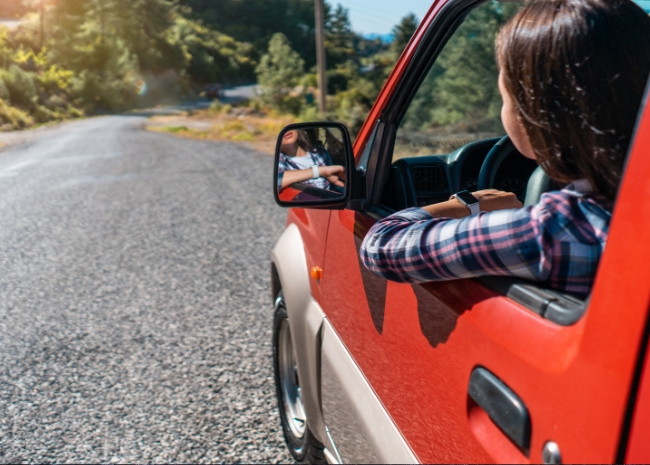
How To Alleviate Soreness During Car Rides
Long drives can be a lot of things—peaceful, exciting, necessary, even fun—but comfortable? Not always. That stiff lower back, tight neck, or aching hips after hours in the car is all very real, and, yes, pretty frustrating.
If you’ve ever wondered, “Why is my body sore from driving?” or found yourself dreading how your legs will feel after a few hours on the highway, you’re definitely not imagining it.
This guide walks you through exactly what’s going on, and more importantly, what you can do about it.
Can Long Car Rides Make You Sore?
Yes, they sure can. And not just a little sore.
We’re talking stiff shoulders, cranky hips, tight hamstrings, sore backs—the works. Whether you’re driving or riding shotgun, that soreness is your body’s way of saying, “Hey, I need to move.”
So… Why Do I Feel So Sore After Driving?
Let’s start with this: your body wasn’t made to sit still in a car seat for hours at a time.
Even if you’re in a pretty comfy ride, you’re still asking your muscles and joints to stay in a fixed position for way longer than they’d like.
What’s Actually Happening in Your Body
Let’s break it down a bit more.
Here’s what’s going on under the surface during those long hours on the road:
1) Not Enough Movement
Even though driving doesn’t feel physically demanding, your body is doing a lot—just very subtly.
But since you’re holding the same posture for so long, your muscles can get tired, stiff, and even overworked without you realizing it.
2) Reduced Blood Flow
Your circulation slows down when you sit too long, especially in your legs. That heavy, achy feeling? That’s often your body dealing with less-than-ideal blood flow.
3) Pressure on Nerves
Ever felt pins and needles in your foot after a while? Or a weird ache in your hip? That could be nerve compression. Certain positions put pressure on nerves, especially if you’re sitting unevenly or slouched.
4) Pre-Existing Issues Get Triggered
If you already deal with things like arthritis, sciatica, or chronic back pain, long car rides can definitely stir things up. It’s not that driving causes these issues, but it can absolutely make them louder.
Is It Normal to Be Sore After Driving?
Yes. But just because it’s common doesn’t mean it’s something you have to accept as “just part of traveling.” There are ways to get ahead of it—and we’ll get into those now.
How to Feel Better in the Car (and After)
1) Move Every 1–2 Hours (Even Just a Little)
You don’t need to do a full workout on the side of the road. But getting out of the car and moving—even briefly—can reset your whole system.
Try:
- A few laps around the car or rest area
- Shoulder rolls and overhead stretches
- Gently twisting your torso side to side
- Calf raises or toe touches
Set a timer if you have to. Your body will thank you later.
2) Switch Drivers If Possible
If you’re road-tripping with someone else, take turns behind the wheel. Driving keeps you more tense—your legs, arms, and core are all engaged in small but constant ways.
Riding in the passenger seat gives your body a break and lets you adjust your posture more freely.
3) Set Up Your Seat for Success
This isn’t about being perfectly upright like a soldier—it’s about supporting your body where it needs it most.
Quick Seat Tips:
- Sit all the way back in your seat so your spine is supported
- Adjust the seat so your hips and knees are level (or knees slightly lower)
- Your head should rest above your shoulders—not jutting forward
- Keep your feet flat when possible—not tucked under you
Avoid reclining too far back—it might feel relaxing at first, but it can strain your lower back and neck over time.
4) Use Lumbar Support (Even DIY Versions)
Lower back pain is one of the most common complaints from drivers, and honestly, most car seats don’t help much. A small pillow or rolled towel at your lower back can make a big difference.
Pro Tip:
Alternate the kind of support you’re using.
Rotate every 20 minutes between:
- A thicker pillow
- A thinner cushion
- No support at all
Changing things up keeps your spine from settling into one stiff position.
5) Pack a Simple “Comfort Kit”
No need to go overboard—but a few thoughtful additions can ease discomfort mid-trip or once you arrive.
Helpful Items to Keep Handy:
- A small heating pad (many plug into the car!)
- Ice pack (great for inflammation after you stop)
- Compression socks (especially for long hauls)
- A massage ball for calves or back tension
- Water and a few snacks that keep you feeling fueled without bloating
Think of it as self-care on the go.
Once You Arrive: Take Care of Your Body
Don’t just collapse on the hotel bed or couch.
Take a few minutes to help your body recover from sitting so long.
Try This Mini Recovery Routine:
- Take a walk (even just 10 minutes helps)
- Do some gentle hip, back, and shoulder stretches
- Soak in a warm bath or take a hot shower
- Drink some water—you’re probably more dehydrated than you think
These little things go a long way in preventing that next-day stiffness.
When Soreness Isn’t Just Soreness
Most road trip aches will pass after some movement and a bit of TLC. But if something feels off—or just doesn’t go away—it’s worth checking in with a healthcare provider.
Pay attention if:
- The pain sticks around more than a few days
- It interrupts your sleep
- It’s sharp, intense, or radiating
- You can’t bear weight or move comfortably
You don’t need to tough it out if your body’s clearly asking for help.
Final Thoughts
It’s totally understandable to feel sore after a long drive, especially if you’re already dealing with any kind of back or joint discomfort.
But here’s the good news: you can feel better. With a few small changes and a bit of awareness, your next road trip can feel way more manageable—and maybe even enjoyable from start to finish.
Safe travels—and don’t forget to stretch.
The Jackson Clinics serves 18 locations throughout Northern Virginia.
Find one near you: thejacksonclinics.com/locations


















